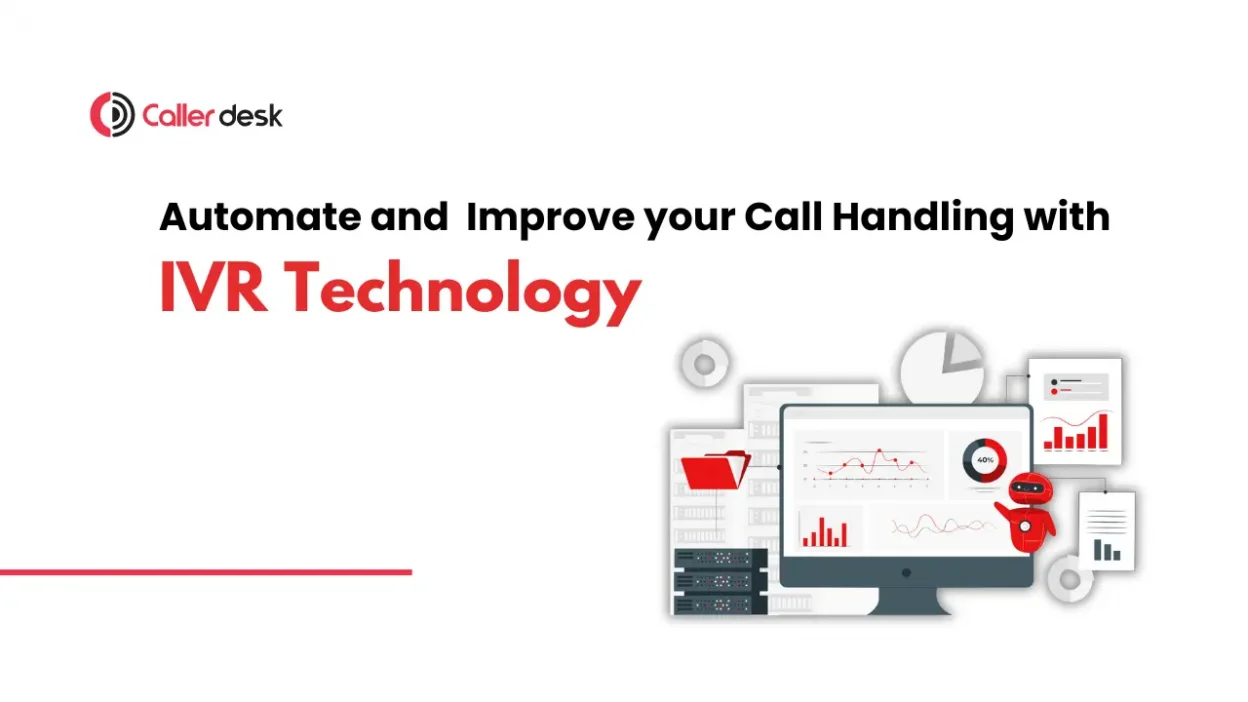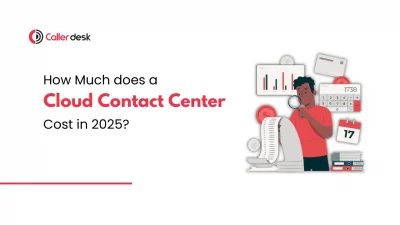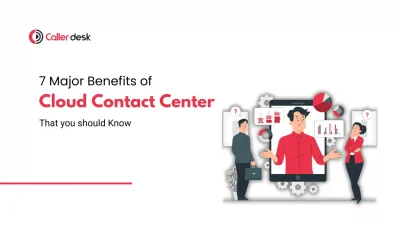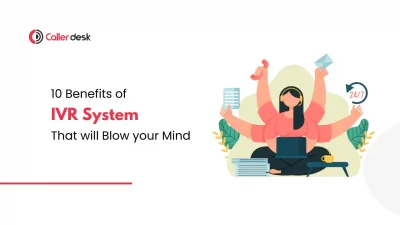Are you struggling to handle too many customer calls? Long wait times, unanswered calls, and frustrated customers can hurt your business.
This is where IVR automation makes a difference. IVR (Interactive Voice Response) technology helps businesses automate call handling, making it easier for customers to get answers, reach the right department, or solve issues on their own—without waiting for an agent.
With automated IVR calls, businesses can:
- Reduce wait times so customers don’t get frustrated
- Provide 24/7 customer support without hiring extra staff
- Automate common tasks like order tracking and account balance checks
- Direct calls to the right department quickly and efficiently
In this blog, we’ll explain what IVR technology is, how it works, and how you can use IVR automation to handle customer calls easily and efficiently.
What is IVR Technology?
Interactive Voice Response (IVR) is an automated phone system that helps businesses handle customer calls. Instead of waiting for a human agent, customers can:
- Press numbers on their phone to reach the right department
- Get information through automated voice responses
- Solve simple issues without needing an agent
This system helps businesses manage high call volumes, improve customer satisfaction, and reduce the workload on support teams.
How IVR Automation Improves Call Handling
1. Directs Calls to the Right Department
With automated IVR calls, customers can be quickly connected to the right department based on their input. This saves time and ensures that the right team handles their request.
Example: A customer needs help with billing. Instead of waiting in a long queue, they press “1” for billing support and are instantly connected.
2. Provides Support Anytime
Unlike human agents, IVR systems work 24/7. This means customers can get answers even outside business hours.
- Customers do not have to wait for office hours
- Businesses can provide service without needing extra staff
3. Allows Customers to Help Themselves
Many customer issues do not need an agent. IVR lets customers find answers on their own, which saves time for both the business and the caller.
Example: A customer wants to check their account balance. Instead of calling an agent, they press a number and get the information immediately.
4. Personalization and Customer Data Collection
By linking IVR technology with a CRM system, businesses can recognize callers based on their phone number.
- Customers get personalized responses
- Calls are handled more efficiently
Example: A returning customer calls to check an order status. The IVR system recognizes their number and provides the latest update without needing a live agent.
5. Scalability
As businesses grow, call volumes increase. Instead of hiring more agents, automated call handling allows businesses to manage more calls without additional staff.
- Easily manage high call volumes
- Save costs on extra hiring
How to automate call handling with IVR Technology?
Automating call handling with IVR (Interactive Voice Response) technology can significantly improve your business’s customer service efficiency. Here’s how you can fully automate your call processes using IVR:
1. Set Up a Simple Call Menu
A well-structured call menu helps customers find the right information quickly. It should have clear options, such as:
- Press 3 for Order Tracking
- Press 1 for Sales
- Press 2 for Support
2. Automate Common Customer Requests
Many customer questions are simple and can be answered without an agent. Businesses can automate calls for:
- Resetting passwords
- Checking account balances
- Tracking orders
3. Integrate IVR with CRM Systems
A good IVR system works better when linked to a CRM. This allows businesses to:
- Recognize callers and greet them by name
- Provide faster service by pulling up customer details
- Keep track of customer interactions for better support
Example: A customer calls about a recent purchase. Instead of repeating details, the IVR system instantly provides an update.
4. Set Up Automated Call Routing
- Make sure calls go directly to the right team based on customer selection.
- Example: If a caller presses “2” for support, the IVR connects them to a support agent without any delay.
5. Offer Automated Support After Business Hours
Let IVR handle basic customer queries even after office hours. If a live agent is needed, the system can schedule a callback for the next working day.
6. Monitor and Optimize Performance
Businesses should regularly check call data and customer feedback. Updating menus, improving voice commands, and refining call routing can improve customer satisfaction.
Conclusion
Using IVR automation technology can streamline call handling, reduce costs, and improve customer satisfaction. With automated call routing, self-service options, and 24/7 availability, businesses can handle calls more efficiently while giving customers a smoother experience.
To enhance your customer service and simplify call management, CallerDesk offers a free demo to help you set up an IVR system that fits your business needs. Try it today and see how IVR automation can improve your operations!





